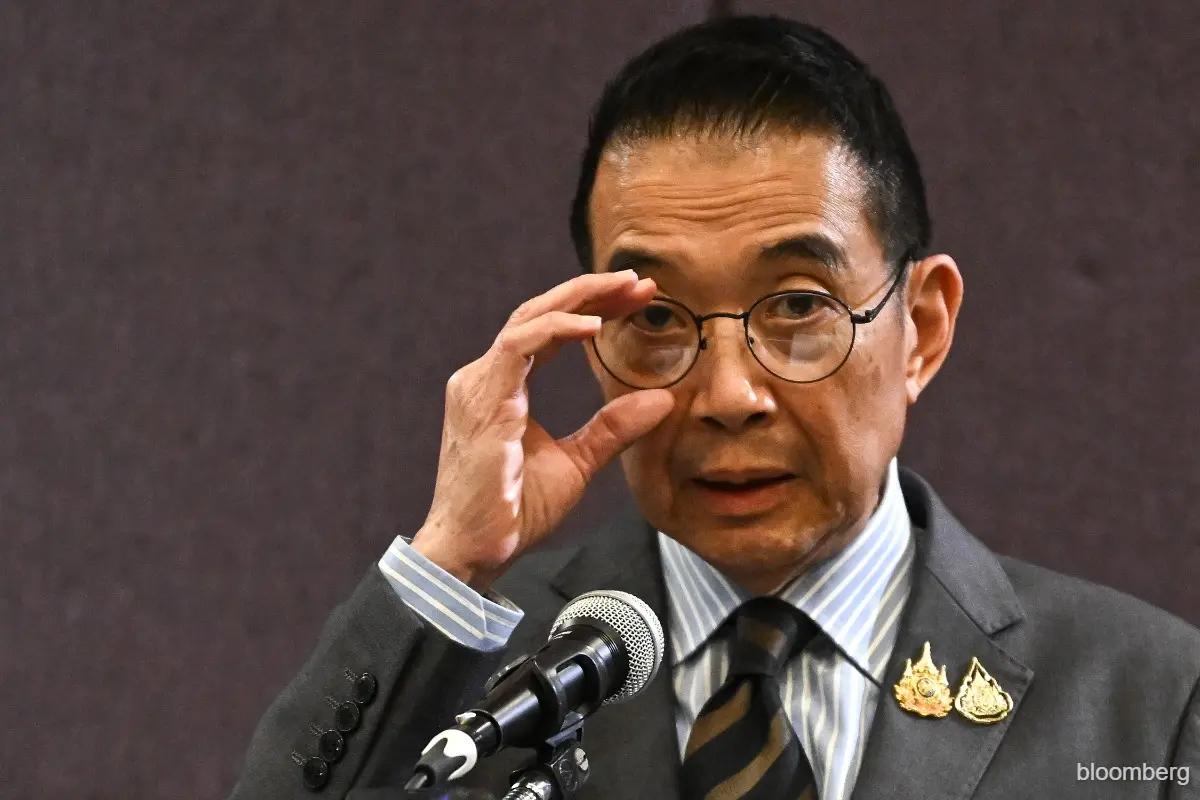
Southeast Asian nations should look at ways to further integrate their supply chains regionally and around the world to reap the benefits of economies of scale and gain access to larger markets, Thailand’s foreign minister said.
Some countries in the region are already working together to produce more complex goods such as semiconductors, and Asean officials do see the potential that comes from being part of the global supply chain, Maris Sangiampongsa said in an interview in Kuala Lumpur with Bloomberg TV’s Avril Hong.
“That is the key that leads to the integration, more and more deepening of our relationships and integration of our members of Asean,” Maris said. “We have to share the advantage in the manufacturing. That means we share the opportunities for supply chains for the global market.”
Maris was responding to a question on concerns about an influx of cheap imports into Thailand. A survey of chief executives of Thai companies released last month showed that almost 71% of the participants were worried about cheap Chinese goods flooding Thai markets, leading to lower use of production facilities or more factory closures.
“When there’s a big volume of products from China, it also helps the Thai economy, because people can buy things cheaper than produced in Thailand,” he said. “What I am trying to say is, we have to work and to find, to be able to see the advantage of working together with Asean to fulfil the global supply chain.”
China’s economic ties with Southeast Asia have soared in recent years, with free-trade deals and efforts to avoid US tariffs targeting Beijing driving trade and investment from Chinese companies and other multinationals into Asean. Vietnam was the largest recipient of manufacturing investment from China last year, followed by Indonesia, according to US research company Rhodium Group, with both seeing around US$3 billion (RM12.61 billion) in newly announced Chinese manufacturing projects.
Maris spoke on Sunday after meeting with Asean foreign ministers who gathered ahead of the leaders summit this week. Key areas of focus are complexities surrounding the global trade war and navigating tense relations between superpowers. The US has indicated it won’t negotiate with Asean as a bloc and will pursue bilateral discussions.
Prime Minister Datuk Seri Anwar Ibrahim said on Monday that he had written to US President Donald Trump seeking to organise a meeting with Asean members amid concerns over the proposed tariffs.
Trade-reliant Asean countries are in a rush to negotiate with the US to lower imposed tariff rates, ranging from 10% to 49%. Many have already pledged to increase purchases of a swathe of US goods to strengthen their case for lower tariffs. The urgency is because Asia, which manufactures most of the world’s goods, is poised to be among the hardest hit in the global trade war.
Countries must be able to work on security and economic concerns with either superpower as selecting sides on a per-issue basis is not feasible, Maris said. China was Asean’s top trading partner in 2024, with total trade worth US$770 billion.
Thailand has expressed its readiness to hold talks with the US — its biggest export market last year — after submitting a proposal detailing how it will boost imports of American goods and investments in the US, and strengthen bilateral cooperation. The country expects to reduce its trade surplus with the US by as much as US$15 billion annually — from about US$45 billion last year — with its recent initiatives to prevent the misuse of origin rules for exports.
The US tariffs also came after Thailand joined BRICS — in which China is a member but not the US — as a partner country, which should help it hedge against uncertainties with pathways into other global markets. Maris said Thailand is seeking a full membership but cannot say when that will happen.
Source: Bloomberg
Share: